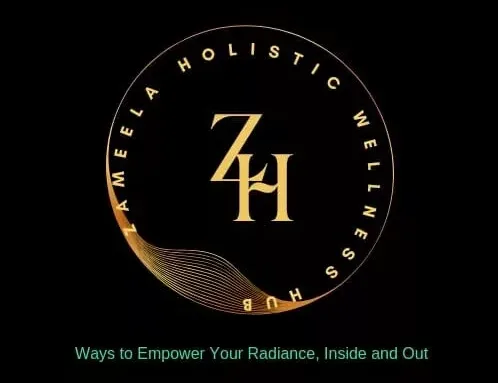Good Guided Meditation: 5 Life-Changing Quick Practices to Melt Away Stress!
Embark on serenity with our guide to ‘Good Guided Meditation.’ Discover 5 life-changing practices for quick stress relief and inner peace. Elevate your well-being effortlessly!
Introduction to Good Guided Meditation:
Life can often feel like a whirlwind, leaving us feeling stressed, overwhelmed, and disconnected from ourselves. In the midst of chaos, finding moments of serenity becomes paramount. It was during one of those particularly challenging periods in my life that I stumbled upon the transformative power of Good Guided meditation.
As I embarked on this journey, I discovered that effective meditation techniques can do more than just provide a momentary escape. They have the ability to bring about a profound shift in our perspective, enhancing our well-being and helping us navigate life’s challenges with grace and clarity.
Journey into Serenity: Unveiling Five Life-Changing Practices of Good Guided Meditation
In this article, we will explore the world of Good Guided meditation and dive into five life-changing quick practices that can melt away stress and rejuvenate our minds and bodies. These practices are designed to enhance mindfulness, promote deep relaxation, and bring a sense of peace and tranquility to our lives. Whether you are a meditation enthusiast or new to the practice, these techniques will help you incorporate guided meditation into your daily routine and experience the incredible benefits it offers.
Key Takeaways:
- Good Guided meditation can bring about a profound shift in perspective and enhance overall well-being.
- Effective meditation techniques go beyond momentary relaxation and offer lasting benefits.
- Meditation practices can help enhance mindfulness, promote deep relaxation, and bring about peace and tranquility.
- Regardless of your experience level, these quick meditation practices can be easily incorporated into your daily routine.
- By embracing guided meditation, you can experience profound changes in your mental, emotional, and physical well-being.
The Transformative Power of Good Guided Meditation
In this section, we will explore the transformative power of Good Guided meditation. Meditation, a practice that has been passed down for centuries, has proven to have numerous benefits for our mental and emotional well-being. Through the art of guided meditation, we can tap into the incredible potential of our minds and experience profound changes in our lives.
Meditation has been scientifically proven to reduce stress, enhance focus and concentration, increase self-awareness, and promote a sense of inner peace and calm. In today’s fast-paced world, where stress seems to be ever-present, incorporating mindfulness practices into our daily routine has become crucial for our mental well-being.
Nurturing Mindfulness: The Transformative Journey of Good Guided Meditation
By engaging in guided meditation, we can cultivate mindfulness, which allows us to be fully present and aware in the current moment. This practice helps us release the grip of our racing thoughts and become more grounded and centered. As we develop the habit of mindfulness, we become better equipped to handle the challenges and stresses that come our way.
The transformative power of Good Guided meditation lies in its ability to provide stress relief and support our mental well-being in a holistic manner. It allows us to create a sanctuary within ourselves, where we can find solace and rejuvenation amidst the chaos of life.
Envisioning Tranquility: A Good Guided Meditation Prelude to Deep Breathing Techniques
To illustrate the transformative journey with Good Guided meditation, let’s take a moment and imagine a serene scene. Close your eyes and visualize a tranquil garden, where the soft breeze rustles the leaves, and the gentle scent of flowers fills the air. As you embrace this moment of stillness, allow your mind and body to surrender to the transformative power of meditation.
In the next section, we will delve into the role of deep breathing in stress relief and explore techniques for enhancing this vital component of guided meditation.
The Role of Deep Breathing in Stress Relief
In this section, we will explore the role of deep breathing in stress relief. Breathing is an essential aspect of meditation and plays a crucial role in promoting relaxation and reducing stress. Deep breathing exercises can help calm our nervous system, lower heart rate, and bring about a sense of calm and tranquility.
Understanding the Breath-Stress Connection
Before we delve into the techniques for enhancing deep breathing, let’s first understand the breath-stress connection. When we experience stress, our breathing tends to become shallow and rapid. This can further contribute to feelings of anxiety and tension. By practicing deep breathing exercises, we can reverse this pattern and activate the body’s relaxation response.
Techniques for Enhancing Deep Breathing
There are various techniques that can help enhance deep breathing and maximize its stress-relieving benefits. Here are a few techniques to try:
1.Diaphragmatic Breathing:
Also known as belly breathing, this technique involves focusing on breathing deeply into the diaphragm rather than shallowly into the chest. It helps promote relaxation and reduces tension.
2.Alternate Nostril Breathing:
This technique involves breathing through one nostril at a time while using the fingers to alternate the nostrils. It can help balance the flow of energy in the body and calm the mind.
3.Box Breathing:
In this technique, you inhale for a count of four, hold the breath for a count of four, exhale for a count of four, and hold the breath again for a count of four. It helps regulate breathing and induces a state of calm.
These techniques can be incorporated into your guided meditation practice to enhance relaxation and alleviate stress. Remember to focus on your breath, allowing it to guide you into a state of deep relaxation and tranquility.
Good Guided Meditation for Mindful Awareness
In today’s fast-paced world, finding moments of serenity and cultivating mindful awareness is more important than ever. Mindfulness is the practice of being fully present in the moment, without judgment or attachment. It allows us to anchor ourselves in the present moment, embracing the richness of our experiences and finding inner peace.
One powerful tool that can aid in the development of mindful awareness is good guided meditation. Guided meditation provides a structured path for mindfulness, helping us navigate the realms of our thoughts, sensations, and emotions. By following a skilled guide, we can deepen our practice and align our intentions with the present moment.
Cultivating Mindful Awareness: Techniques in Good Guided Meditation
There are various mindfulness exercises and techniques that are incorporated into guided meditation, each serving a specific purpose in enhancing our mindful awareness. These exercises may include focusing on the breath, body scan, loving-kindness meditation, and many more.
When practicing Good Guided meditation for mindful awareness, we are invited to observe our thoughts and emotions without judgment or attachment. We learn to acknowledge them, let them pass through our awareness, and gently return our attention to the present moment. This process allows us to cultivate a deeper sense of self-awareness, compassion, and acceptance.
Benefits of Good Guided Meditation for Mindful Awareness:
- Reduces stress and anxiety.
- Enhances focus and concentration.
- Promotes emotional well-being.
- Improves self-awareness.
- Cultivates a sense of inner calm and peace.
“The present moment is the only moment available to us and is the door to all moments.” – Thich Nhat Hanh
By incorporating Good guided meditation into our mindfulness meditation practice, we create space for greater self-discovery and personal growth. It allows us to tap into the essence of the present moment and experience life as it unfolds, with clarity, curiosity, and gratitude.
Creating a Personal Meditation Practice

In order to fully reap the benefits of guided meditation and mindfulness, it’s important to establish a personal meditation practice. This practice allows you to cultivate a deeper connection with yourself and create a space for inner peace and tranquility. Here are some key steps to help you create and nurture your own personal meditation practice:
Finding Comfort in Your Meditation Space
Creating a dedicated meditation space is essential for establishing a consistent meditation routine. Find a quiet and peaceful area in your home where you can retreat and focus on your practice. Decorate this space with items that bring you a sense of calm and serenity, such as cushions, candles, or plants. Make sure the space is clutter-free and free from distractions. This will help create an environment that is conducive to deep relaxation and mindfulness.
Incorporating Regular Meditation into Your Routine
Consistency is key when it comes to meditation. Set aside a specific time each day to practice meditation, whether it’s in the morning, during your lunch break, or in the evening. Start with short meditation sessions, gradually increasing the duration as you become more comfortable. You can use guided meditation apps or meditation tracks to assist you in your practice. Remember, it’s important to be gentle with yourself and not judge your meditation experience. Embrace each session as an opportunity for growth and self-discovery.
Long Term Benefits of Good Guided Meditation
By incorporating regular meditation into your daily routine, you can experience the long-term benefits of guided meditation and mindfulness. It can help reduce stress, improve focus and concentration, enhance self-awareness, and promote emotional well-being. Dedicate the time and space to nurture your personal meditation practice, and you will discover a profound sense of inner peace and balance.
Tailoring Meditation to Your Lifestyle
We will discuss the importance of tailoring meditation to your lifestyle. Many people believe that meditation is only for those who have ample time and a peaceful environment. However, meditation can be adapted to suit various lifestyles and schedules. We understand that life can be hectic, and finding time for self-care practices like meditation can be challenging. But rest assured, there are techniques and adaptations that can make meditation accessible and beneficial for busy individuals or those with specific lifestyles.
Whether you are a parent juggling multiple responsibilities, student overwhelmed with coursework, or a professional with a demanding schedule, you can find a meditation practice that suits your needs and enhances your overall well-being.
Meditation for Busy Individuals:
- Use short meditation sessions: If you can’t dedicate a significant amount of time to meditation, start with shorter sessions, even as little as five minutes. Consistency is key, so aim for regular practice.
- Integrate mindfulness into daily activities: Incorporate mindfulness into daily routines, such as during your commute, while doing household chores, or while taking a break at work. These moments of mindfulness can help you find calm amidst the busyness of life.
- Utilize guided meditation apps: Take advantage of guided meditation apps that offer shorter guided sessions specifically designed for busy individuals. These apps provide flexibility and convenience, allowing you to squeeze in meditation whenever you have a few spare minutes.
Meditation for Specific Lifestyles:
- Parenting: Parents can involve their children in meditation by practicing family meditation or incorporating mindfulness techniques into family activities. This not only benefits the parents but also helps calm and center the entire family.
- Students: Students can integrate meditation into their study routine by taking short breaks for meditation or incorporating guided study meditations to enhance focus and concentration.
- Professionals: Professionals can practice meditation during work breaks or incorporate mindfulness techniques to manage stress and improve productivity. Setting boundaries and creating a dedicated meditation space in the workplace can also be helpful.
Meditation Adaptations:
-
Walking meditation:
For those who struggle with sitting still for extended periods, walking meditation can be a great alternative. This involves bringing mindfulness to the act of walking, focusing on the sensation of each step.
-
Body scan meditation:
Body scan meditation can be particularly beneficial for individuals with physical discomfort or chronic pain. This practice involves systematically scanning the body’s sensations, promoting relaxation and self-awareness.
-
Group meditation:
Joining a meditation group or attending meditation classes can provide structure and support for your practice. It also allows you to connect with like-minded individuals and learn from experienced teachers.
No matter your lifestyle or schedule, there is a meditation practice out there for you. Adaptations and techniques can help you find harmony amidst the chaos, promoting relaxation, mindfulness, and overall well-being.
Table of Meditation Techniques
+—————–+——————————————————-+
| Lifestyle | Meditation Technique |
+—————–+——————————————————-+
| Parents | Family meditation, incorporating mindfulness into family activities |
| Students | Taking short study breaks for meditation, guided study meditations |
| Professionals | Meditation during work breaks, incorporating mindfulness techniques into work routine |
+—————–+——————————————————-+
Explore the transformative journey with the power of “Good Guided Meditation” tailored to your lifestyle.
Meditation and Resilience: Building a Calmer Mindset

In today’s fast-paced world, cultivating resilience and maintaining a calm mindset is crucial for our overall well-being. In this section, we will explore the powerful connection between meditation and resilience. Resilience, often defined as the ability to bounce back from challenges and adversity, plays a vital role in our mental and emotional health.
Regular meditation practice can significantly contribute to building mental resilience and developing a calmer mindset. By incorporating meditation into our daily routine, we can strengthen our ability to navigate through stressful situations, cultivate a positive outlook, and effectively manage stress.
Harmony Within: The Physiological and Mindful Benefits of Meditation
Studies have shown that meditation activates the relaxation response in our bodies, reducing the levels of stress hormones such as cortisol. This physiological effect promotes a sense of calmness and tranquility, enabling us to approach difficulties with a clear and focused mind.
Moreover, meditation helps cultivate self-awareness and mindfulness, allowing us to observe our thoughts and emotions without judgment. This heightened awareness enables us to notice the signs of stress and respond to them proactively, rather than reacting impulsively.
Fostering Resilience: Embracing the Transformative Power of Meditation
By integrating meditation into our lives, we can develop the ability to regulate our emotions and maintain a sense of balance during challenging times. We become more resilient in the face of adversity, adapting to change with grace and composure.
Ultimately, meditation provides us with a powerful tool for stress management and building mental resilience. It empowers us to face life’s challenges with clarity, equanimity, and a renewed sense of calm.
Discover the transformative journey that meditation offers, as we embrace the power of resilience and cultivate a calmer mindset.
The Power of Resilience
“Resilience is not about escaping our difficulties, but rather embracing them with an unwavering spirit and an open heart.” – Dalai Lama
Benefits of Meditation for Resilience
- Enhances mental clarity and focus.
- Reduces stress and anxiety levels.
- Strengthens emotional well-being.
- Promotes self-awareness and mindfulness.
- Improves coping mechanisms and adaptability.

Meditation Techniques |
Benefits |
|---|---|
| Guided visualization | Enhances resilience and promotes a positive mindset. |
| Metta (loving-kindness) meditation | Cultivates compassion and resilience towards oneself and others. |
| Body scan meditation | Encourages physical and emotional awareness, reducing stress. |
| Mantra meditation | Focuses the mind and promotes mental resilience. |
High-Quality Guided Meditation Resources
In this section, we will explore high-quality guided meditation resources that can support your meditation practice. Whether you’re a beginner or experienced meditator, these resources will help enhance your journey towards peace and mindfulness.
Exploring the Best Guided Meditation Apps
Guided meditation apps have become increasingly popular due to their convenience and accessibility. These apps offer a variety of guided meditation tracks and sessions tailored to different needs and preferences. Here are some of the best guided meditation apps available:
1.Headspace:
With its user-friendly interface and a wide range of guided meditations, Headspace is a top choice for beginners and seasoned meditators alike. The app offers meditation tracks on various topics, including stress relief, sleep, and creativity.
2.Calm:
Known for its soothing guided meditation sessions, Calm provides users with a serene and tranquil experience. The app also offers sleep stories, breathing exercises, and mindfulness exercises that promote relaxation and well-being.
3.Insight Timer:
Offering one of the largest collections of guided meditations, Insight Timer has something for everyone. The app features tracks from renowned meditation teachers and allows users to customize their meditation experience.
These apps are available for both iOS and Android devices, making it easier than ever to practice guided meditation on the go.
Popular Guided Meditation Tracks and Sessions
Alongside guided meditation apps, there are also popular guided meditation tracks and sessions that have garnered positive reviews and proven to be effective in promoting relaxation, mindfulness, and stress relief.
Some well-loved guided meditation tracks and sessions include:
“Mindful Breathing” by Tara Brach:
This guided meditation session focuses on deepening your connection to the breath and cultivating a sense of calm and presence.
“Loving-Kindness Meditation” by Sharon Salzberg:
This guided meditation practice emphasizes the cultivation of self-love and compassion towards others, fostering a deep sense of connection and well-being.
These are just a few examples of popular guided meditation tracks and sessions that can support your practice. Exploring different tracks and finding ones that resonate with you is key to creating a fulfilling and effective meditation routine.
Beyond Stress Relief: Unveiling the Holistic Benefits of Good Guided Meditation
By embracing the power of meditation, you can build resilience, cultivate a calm mindset, and navigate through life’s challenges with greater ease.
The benefits of “Good Guided Meditation” are not limited to relaxation and stress relief. They extend to all aspects of our lives, allowing us to experience a deeper connection with ourselves and the world around us. So, take a deep breath, find a quiet space, and let the transformative power of guided meditation guide you on a path to a more peaceful and fulfilling life.
Conclusion
In conclusion, “Good Guided Meditation” offers a transformative journey that can lead to profound changes in our mental, emotional, physical well-being. Through the practices and techniques explored in this article, we have discovered the power of Good Guided Meditation in melting away stress and bringing about a sense of peace and tranquility.
By incorporating these quick practices, we can experience the benefits of mindfulness, deep relaxation, and increased self-awareness. “Good Guided Meditation” provides a powerful tool for harmonizing the mind and body and finding moments of serenity in our fast-paced lives.
As we reflect on the essence of “Good Guided Meditation,” we invite you to embark on your own meditation journey, exploring the abundance of guided meditation resources available.
FAQ
What are the benefits of Good Guided meditation?
Good Guided meditation can provide numerous benefits, such as stress relief, improved focus and concentration, increased self-awareness, and a sense of inner peace and calm. It can also enhance mindfulness, promote deep relaxation, and contribute to overall well-being.
How can meditation help reduce stress?
Meditation helps reduce stress by activating the body’s relaxation response and calming the nervous system. Through regular practice, meditation can train the mind to let go of stressful thoughts and cultivate a state of inner calm and tranquility.
What are some effective deep breathing techniques for stress relief?
Deep breathing techniques, such as diaphragmatic breathing and alternate nostril breathing, can help calm the nervous system and reduce stress. These techniques involve slow, deep breaths that promote relaxation and bring about a sense of calm and tranquility.
How can guided meditation enhance mindful awareness?
Guided meditation can be an effective tool for cultivating mindful awareness by bringing our attention to the present moment. By following the guidance of a meditation instructor, we can develop a deeper sense of mindfulness and experience the full benefits of being fully present in the now.
How can I create a personal meditation practice?
Creating a personal meditation practice involves finding a quiet and comfortable space for meditation, establishing a regular routine, and making meditation a consistent part of your daily life. By dedicating time and effort to your practice, you can experience the long-term benefits of guided meditation and mindfulness.
Can meditation be adapted to suit different lifestyles?
Yes, meditation can be tailored to suit various lifestyles. Whether you are a parent, a student, or a busy professional, there are techniques and adaptations that can make meditation accessible and beneficial for you. It’s important to find a meditation practice that fits your needs and can be incorporated into your daily routine.
How does meditation contribute to resilience?
Regular meditation practice can strengthen mental resilience by helping individuals build a calm and resilient mindset. By cultivating a positive outlook, developing emotional stability, and improving coping mechanisms, meditation can enhance the ability to bounce back from challenges and adversity.
What are some high-quality guided meditation resources?
There are several guided meditation apps available that offer a wide range of guided meditation tracks and sessions. These apps provide effective and popular guided meditation resources for relaxation, mindfulness, and stress relief. Additionally, there are specific guided meditation tracks and sessions that have garnered positive reviews and proven to be effective.



Wow, fantastic blog format! How lengthy have you ever been running a blog for?
you make blogging glance easy. The full look of your
website is excellent, let alone the content! You can see similar: dobry sklep and here sklep internetowy
This stage is fabulous. The magnificent information uncovers the publisher’s excitement. I’m shocked and envision additional such extraordinary presents.